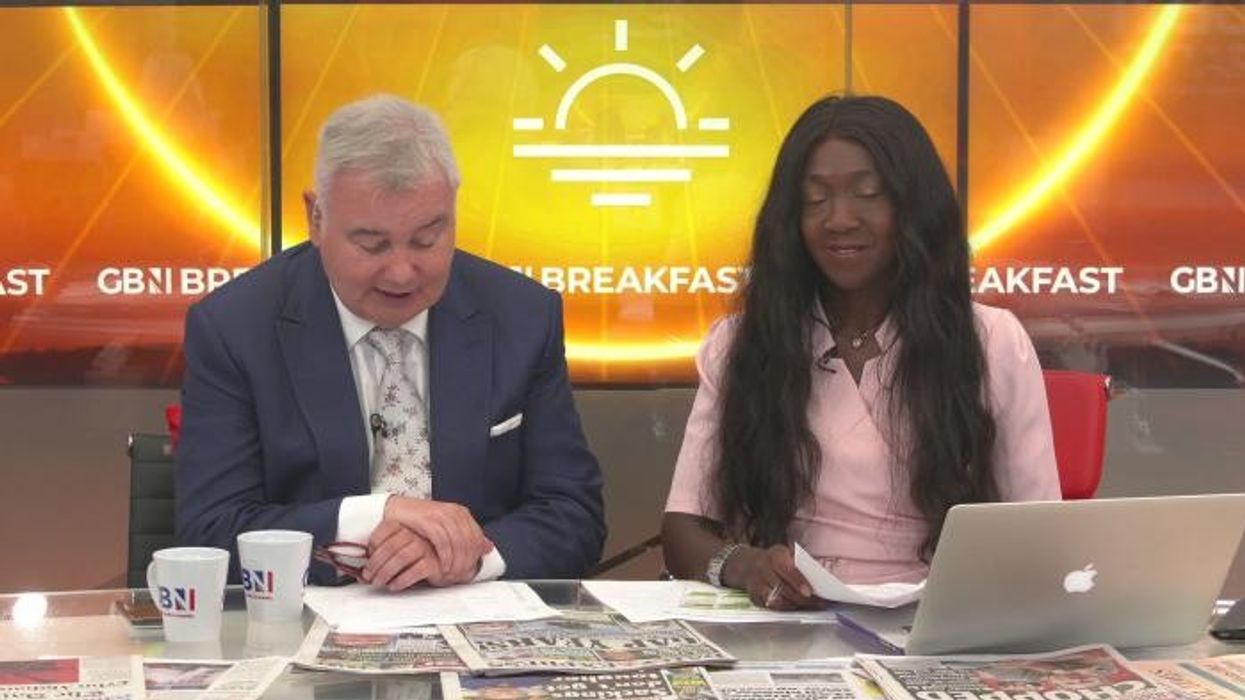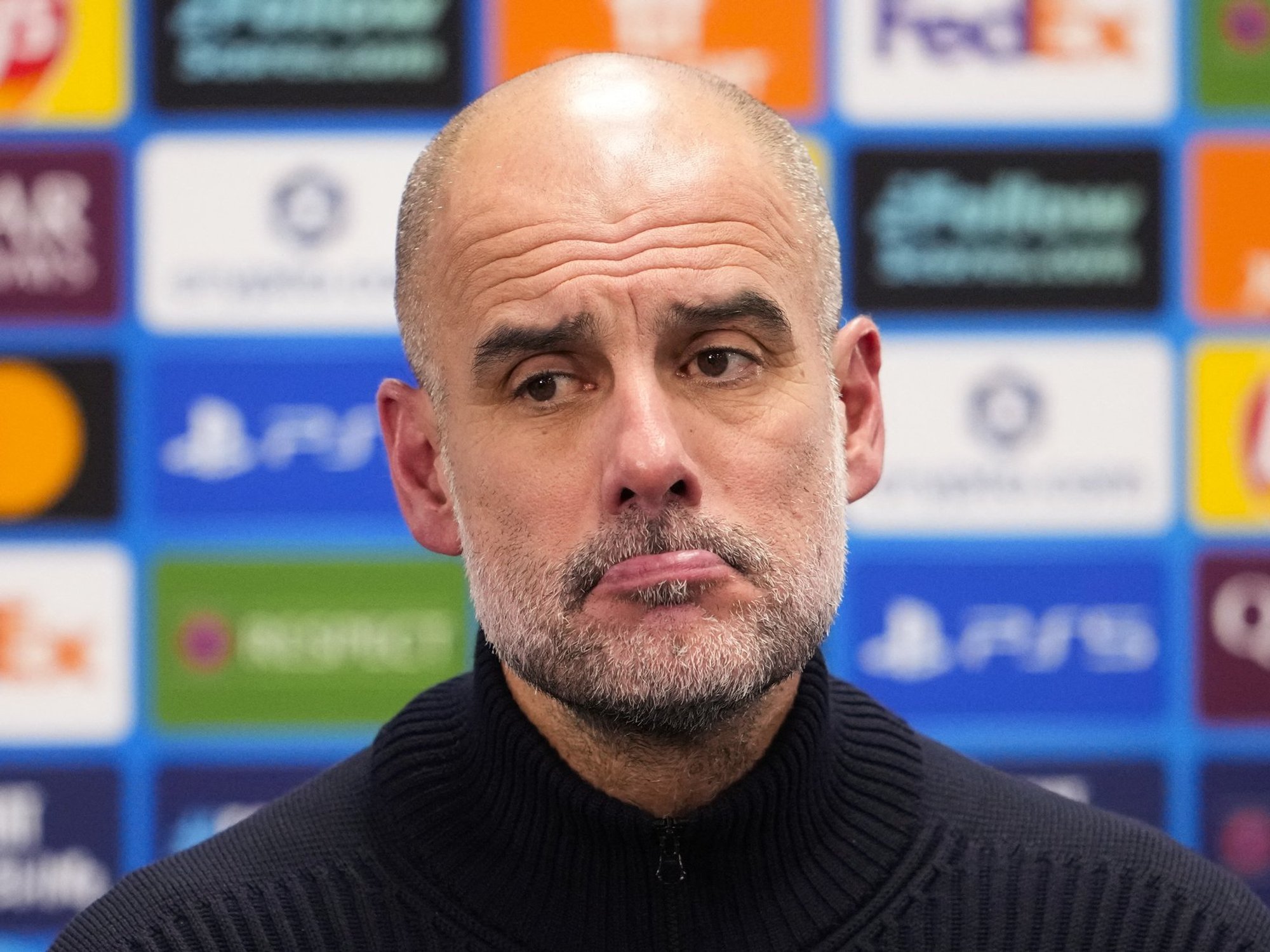Major rule changes to VAR and penalties to be considered ahead of 2026 World Cup

The changes would involve expanding VAR's responsibilities
Don't Miss
Most Read
Football's governing body, the International Football Association Board (IFAB), is weighing up dramatic changes to the sport's rules of penalties and VAR intervention before the 2026 World Cup in the United States, Mexico and Canada.
The proposals represent one of the most significant overhauls since VAR's introduction in 2017, while introducing a new rule to penalties that has never been seen in the history of the game.
For VAR expansion, officials could intervene on "fact-based decisions" where clear errors occur, such as wrongly-awarded corners.
The technology would also review second yellow cards, which currently fall outside VAR's scope despite resulting in red cards.
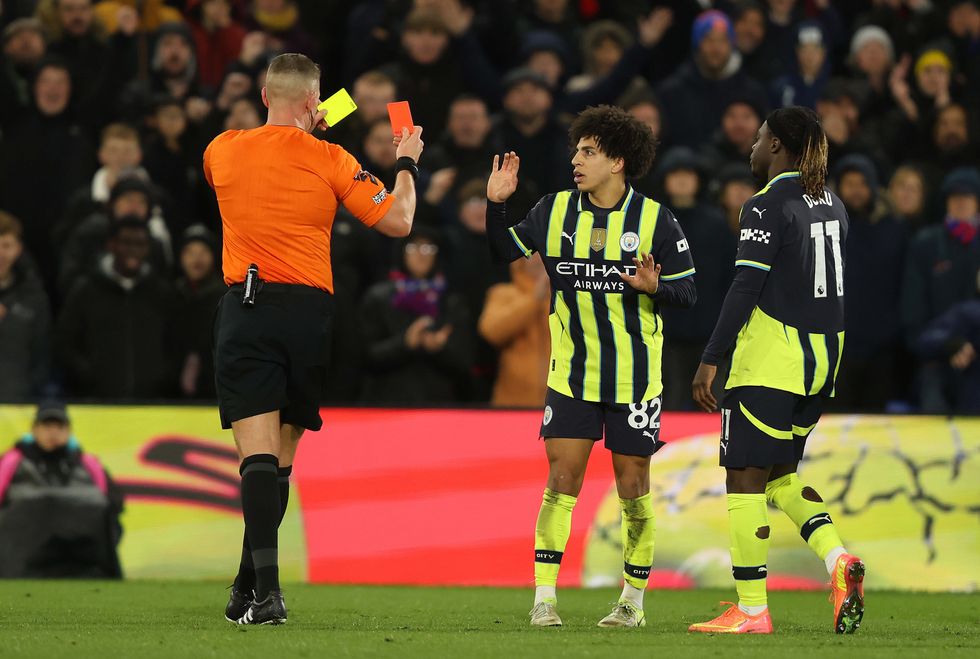
Rico Lewis received a controversial second yellow card, and subsequent red card, against Crystal Palace last season
|Getty
For example, Manchester City's Rico Lewis received a controversial second yellow card against Crystal Palace last year.
Replays showed that Lewis did not commit the foul, but it was in fact the other way round, and could have been reversed under the potential new rulings.
IFAB wants assurances, however, that any VAR expansion will not cause additional delays, with only decisions reversible within seconds being considered.
The governing body has previously resisted including second yellows within VAR's scope but recognises that red cards significantly impact matches, leading to the rule change consideration.
JUST IN: Crystal Palace confirm they will step up legal battle against UEFA after Europa League ban
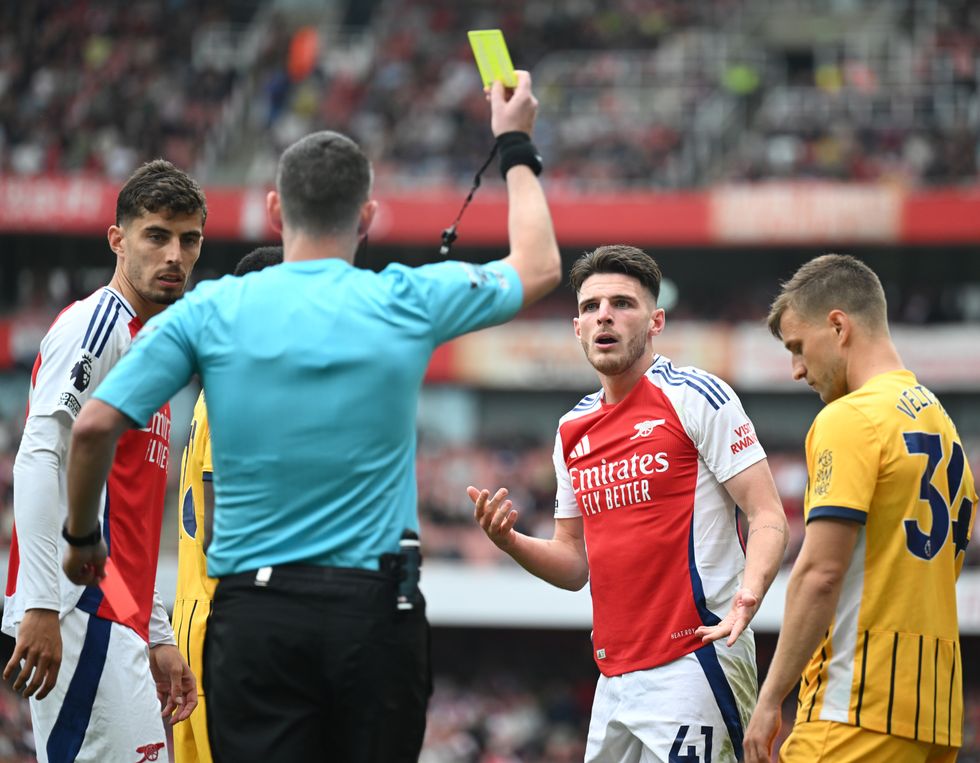
Declan Rice also received a controversial red card as a result of two yellows
|Getty
The other controversial suggestion is banning rebounds from penalty kicks.
Under this proposal, the penalty rebound ban would fundamentally alter how spot-kicks work: if a penalty is saved or hits the post, play would restart with either a goal-kick for the defending team or a kick-off if scored.
The ball would be declared "dead" if a goalkeeper saves a spot-kick, preventing attackers from scoring on the follow-up.
Senior football figures believe penalties already provide attacking teams with an excessive advantage.
READ MORE: Former US Open champion banned from prestigious golf course and told to seek counselling
They argue that when a foul or handball prevents a scoring opportunity, the resulting penalty offers a far greater chance of scoring than the original play would have provided.
Allowing rebounds compounds this advantage, particularly as goalkeepers must keep one foot on the line when facing penalties, and the one-shot rule would also eliminate disputes over player encroachment.
These changes would need approval at IFAB's annual meeting, with new laws taking effect from June 1, 2026, just before the World Cup begins.
LATEST SPORTS NEWS:
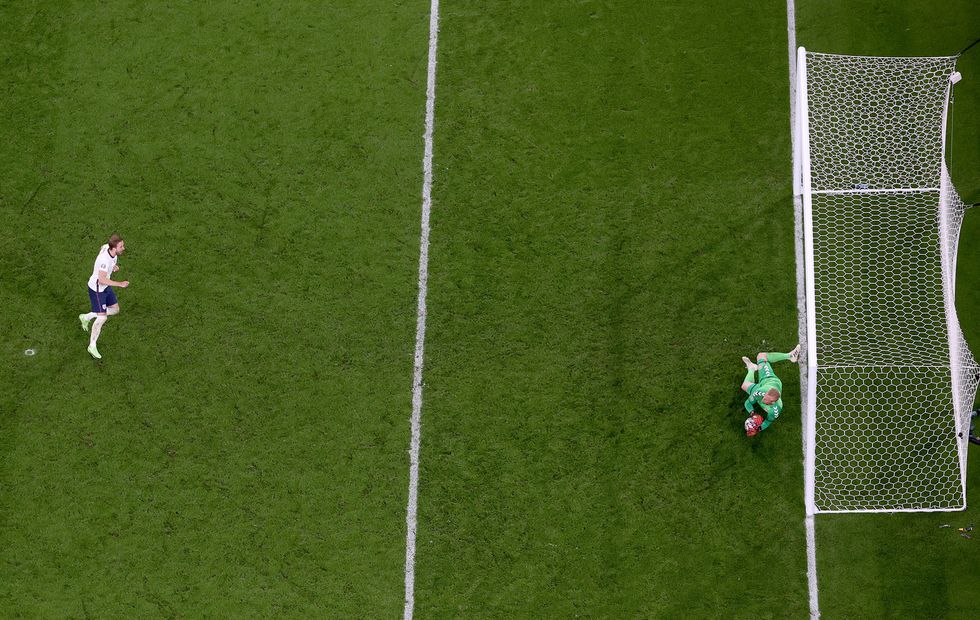
Harry Kane saw his penalty saved by Kasper Schmeichel in England's Euro 2021 campaign against Denmark, but converted the rebound
|Getty
The governing body insists any changes must avoid causing further delays to games.
Football supporters have reacted with dismay to the proposed changes on social media.
One fan questioned the logic of reviewing only second yellow cards, stating: "If they are reviewing the two yellow card dismissal, they should review both the yellow cards, not just the second yellow. As that is the most logical approach."
Another supporter expressed frustration at the penalty rebound ban, asking: "No follow up shot on pens? Why are they hell bent on ruining the game??"
The strength of feeling was evident in more extreme reactions, with one user writing: "Why don't we just ban football altogether seeing as they are so intent on killing it?"
The backlash reflects widespread concern that IFAB's proposals could fundamentally alter football's character and remove elements that have defined the sport for generations.


